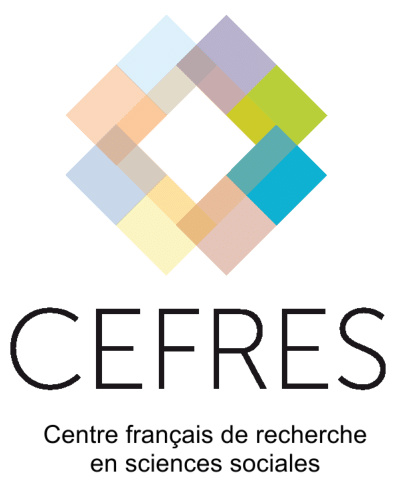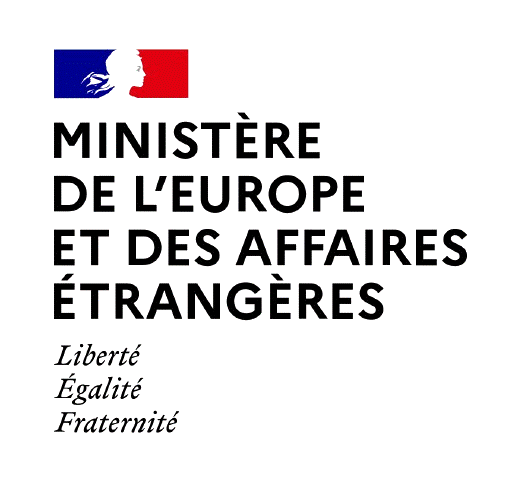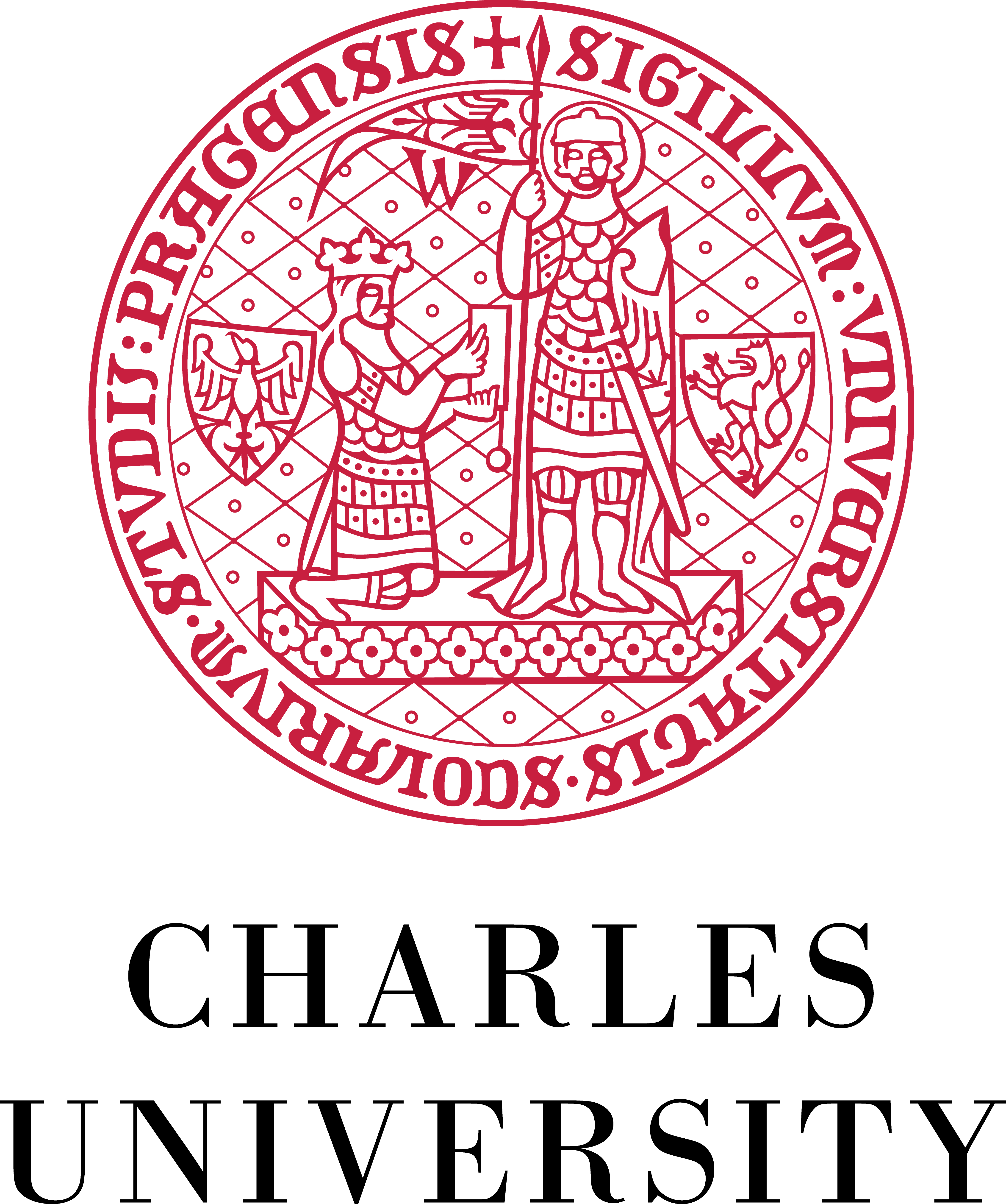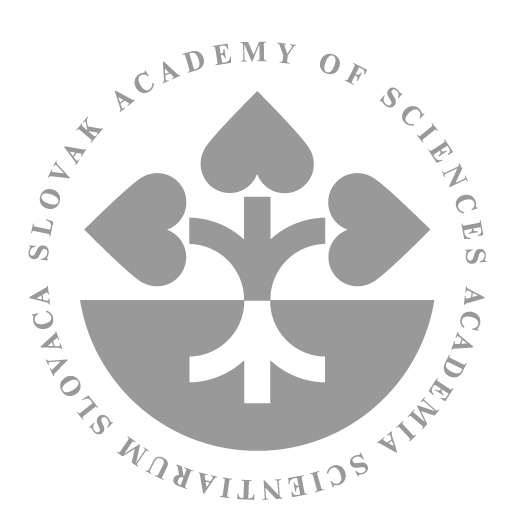
Call for Papers:
Queer Materiality: Becoming-Relations
Place: Prague, Charles University & French Research Center in Humanities and Social Sciences – Prague (CEFRES)
Date: 12-13 March 2026
Keynotes: Prof. Jack Halberstam (Columbia University), Dr. Bogdan Popa (Transylvania University), Hélène Giannecchini (to be confirmed)
Organizing institutions: Charles University Prague, French Research Center in Humanities and Social Sciences - Prague (CEFRES), Slovak Academy of Sciences, Center for Environmental and Technology Ethics – Prague (CETE-P)
Organizers: Michaela Rumpíková, Mateusz Chmurski, Josef Šebek, Alžbeta Kuchtová, Iwona Janicka, Eva Voldřichová Beránková
Deadline for abstract submissions: 31 October 2025
In their 2009 book Frames of War: When Is Life Grievable, Judith Butler attempts to rethink “the complex and fragile character of the social bond and to consider what conditions might make violence less possible, lives more equally grievable, and, hence, more livable” (2009: 1). With multiple ideological conflicts around the globe, Butler's project remains relevant. While the Czech and Slovak governments still refuse to acknowledge the Istanbul agreement, elsewhere in Central and Eastern Europe we can observe an underlying tension around LGBTQI+ and other minorities’ rights. Thus, instead of preventing hatred and resentment, which should be one of the goals of democracy and democratic resilience, contemporary nationalism — based on anti-woke discourses — only deepens gaps and differences. This contributes to increasing violence against already marginalized groups. These conflicts are supported by what Butler calls “anti-gender ideology,” itself a “fascist trend” (Butler 2024). Today’s conflicts, intrinsically dividing, seem to come from the desire of authoritarian power to dominate the masses by dividing them.
This conference is motivated by the dynamic idea of producing the unforeseen and accidental through the act of overstepping. While this split is often accompanied by feelings of alienation in Halberstamian sense, it can also be thought of positively and creatively. This de-constructive process presupposes a complex journey where multiple forms interact and configure multispecies entanglements that undergo continual transformations. It allows our bodies to actively interact with their spatiality, temporal frames, and surroundings, to explore more “material” ways of being in the world, and to enter the constant process of becoming-other in the sense of Deleuze and Guattari. Matter does not include only bodily dimension but also worldly dimension; the world and body are rethought together. From this perspective, thinking through the concept of “queer materiality” together with “becoming-relations” implies crossing the human and more-than-human border as well. If queerness could be defined as an act of “radical openness” (Devalena Das), then becoming queer should not only refer to humans. It should also invite us to rethink the human and more-than-human sphere. How could we overcome—and not only theoretically—these multiple layers of difference and thus become-relations?
With our conference, we invite you to engage in an active dialogue of what we call “becoming-relations” and what Haraway might call sympoeisis, translated as “making-with”. These notions enfold interconnectedness and reciprocity, requiring mutual recognition and responsibility. Becoming-with, writing-with, thinking-with: these are our primary research goals that aim at what we could call “peacebuilding processes.” The conference takes up some of the following questions: How can the difference be positively (re)written, (de)constructed, and (re)invented? How does the concept of queerness allow us to rethink, reimagine, and destabilize differences? What forms of alliances (and ruptures) are generated through the process of queering the matter? What are the material consequences of encounters, and what reconfigurations are formed by the means of interactions? How is the new ethics of (queer) relationality mobilized, and how can it resolve conflicts and reinforce resilience? How can we practice both peace and ethical responsibility if, in our political frames, difference and alterity are repeatedly recognized as enemies to national identity? Under what conditions can we think relationality and reciprocal recognition if the political systems constantly produce a set of (hetero)normative borders?
We invite contributions that are linked to the following axes, but not limited to:
• Materiality and gender: Queer/Queerness/Queering
• Queer matter and ecology: (Unexpected) encounters with multiple others
• Materiality and race: Decolonial queerness
• Material impacts: Queer political strategies for the moment
For a full description of this call for papers, please see here.
Please send a detailed abstract in English of 300–600 words and a short biography to queermateriality@gmail.com. Proposals should be submitted no later than on 31 October 2025. The abstracts do not have to be strictly limited to the aforementioned topics. We accept papers more broadly related to the topic.





Call for Papers:
Queer Materiality: Becoming-Relations
Place: Prague, Charles University & French Research Center in Humanities and Social Sciences – Prague (CEFRES)
Date: 12-13 March 2026
Keynotes: Prof. Jack Halberstam (Columbia University), Dr. Bogdan Popa (Transylvania University), Hélène Giannecchini (to be confirmed)
Organizing institutions: Charles University Prague, French Research Center in Humanities and Social Sciences - Prague (CEFRES), Slovak Academy of Sciences, Center for Environmental and Technology Ethics – Prague (CETE-P)
Organizers: Michaela Rumpíková, Mateusz Chmurski, Josef Šebek, Alžbeta Kuchtová, Iwona Janicka, Eva Voldřichová Beránková
Deadline for abstract submissions: 31 October 2025
In their 2009 book Frames of War: When Is Life Grievable, Judith Butler attempts to rethink “the complex and fragile character of the social bond and to consider what conditions might make violence less possible, lives more equally grievable, and, hence, more livable” (2009: 1). With multiple ideological conflicts around the globe, Butler's project remains relevant. While the Czech and Slovak governments still refuse to acknowledge the Istanbul agreement, elsewhere in Central and Eastern Europe we can observe an underlying tension around LGBTQI+ and other minorities’ rights. Thus, instead of preventing hatred and resentment, which should be one of the goals of democracy and democratic resilience, contemporary nationalism — based on anti-woke discourses — only deepens gaps and differences. This contributes to increasing violence against already marginalized groups. These conflicts are supported by what Butler calls “anti-gender ideology,” itself a “fascist trend” (Butler 2024). Today’s conflicts, intrinsically dividing, seem to come from the desire of authoritarian power to dominate the masses by dividing them.
This conference is motivated by the dynamic idea of producing the unforeseen and accidental through the act of overstepping. While this split is often accompanied by feelings of alienation in Halberstamian sense, it can also be thought of positively and creatively. This de-constructive process presupposes a complex journey where multiple forms interact and configure multispecies entanglements that undergo continual transformations. It allows our bodies to actively interact with their spatiality, temporal frames, and surroundings, to explore more “material” ways of being in the world, and to enter the constant process of becoming-other in the sense of Deleuze and Guattari. Matter does not include only bodily dimension but also worldly dimension; the world and body are rethought together. From this perspective, thinking through the concept of “queer materiality” together with “becoming-relations” implies crossing the human and more-than-human border as well. If queerness could be defined as an act of “radical openness” (Devalena Das), then becoming queer should not only refer to humans. It should also invite us to rethink the human and more-than-human sphere. How could we overcome—and not only theoretically—these multiple layers of difference and thus become-relations?
With our conference, we invite you to engage in an active dialogue of what we call “becoming-relations” and what Haraway might call sympoeisis, translated as “making-with”. These notions enfold interconnectedness and reciprocity, requiring mutual recognition and responsibility. Becoming-with, writing-with, thinking-with: these are our primary research goals that aim at what we could call “peacebuilding processes.” The conference takes up some of the following questions: How can the difference be positively (re)written, (de)constructed, and (re)invented? How does the concept of queerness allow us to rethink, reimagine, and destabilize differences? What forms of alliances (and ruptures) are generated through the process of queering the matter? What are the material consequences of encounters, and what reconfigurations are formed by the means of interactions? How is the new ethics of (queer) relationality mobilized, and how can it resolve conflicts and reinforce resilience? How can we practice both peace and ethical responsibility if, in our political frames, difference and alterity are repeatedly recognized as enemies to national identity? Under what conditions can we think relationality and reciprocal recognition if the political systems constantly produce a set of (hetero)normative borders?
We invite contributions that are linked to the following axes, but not limited to:
• Materiality and gender: Queer/Queerness/Queering
• Queer matter and ecology: (Unexpected) encounters with multiple others
• Materiality and race: Decolonial queerness
• Material impacts: Queer political strategies for the moment
For a full description of this call for papers, please see here.
Please send a detailed abstract in English of 300–600 words and a short biography to queermateriality@gmail.com. Proposals should be submitted no later than on 31 October 2025. The abstracts do not have to be strictly limited to the aforementioned topics. We accept papers more broadly related to the topic.




•• All News
Celetná 988/38
Prague 1
Czech Republic
This project receives funding from the Horizon EU Framework Programme under Grant Agreement No. 101086898.